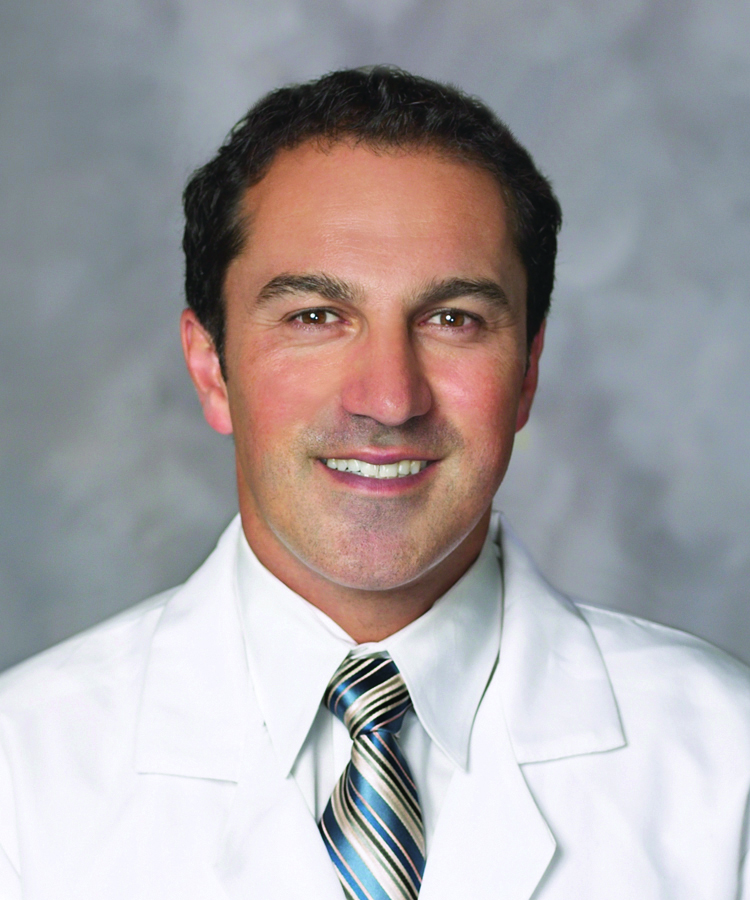 Amir Vokshoor, MD, a spine surgeon with DISC Sports & Spine Center in Marina del Rey, Calif., discusses the importance of every spine surgeon's contribution to research and how to balance being a spine surgeon and scientist.
Amir Vokshoor, MD, a spine surgeon with DISC Sports & Spine Center in Marina del Rey, Calif., discusses the importance of every spine surgeon's contribution to research and how to balance being a spine surgeon and scientist. Q: Why is it important for practicing surgeons to also become involved in research projects?
Dr. Amir Vokshoor: As physicians, we are all interested in our patients' outcomes and without having some way of statistically and scientifically investigating the outcomes to make sure that our surgical methods and the preoperative and postoperative care are evaluated, we will not be improving the standard of care guidelines set for the by the greater practicing community of surgeons, and we will not know where we fare objectively.
I think it's paramount that even small practitioners tabulate their preoperative and postoperative disability indices, pain scores and overall functional outcomes for their patients in order to improve care. It's extremely challenging to be a full time clinician and a true scientific researcher, thus I think surgeons need to be creative in how they achieve these goals.
The options are creating a small research foundation, partnering with a national registry, partnering with other surgeons who are interested in the same or different methods or working with device companies.
Q: Those all sound like interesting options. DISC has a small research foundation; what does it take to start this type of organization?
AV: In our case, we started a non-profit research institute and hired research assistants that can help track the outcome of our patients. This is especially of paramount importance in spine surgery due to continual lack of Class 1 evidence for many of our methods and procedures. Despite an explosion of innovation and wealth of clinical experience and knowledge amongst surgeons, there are continued discrepancies across the United States and the world as to the best methods of treatment for specific spinal disorders. Regional variations as well as global variations in trends for spinal fusion surgery are a good example, and the variety of methods denote this lack of clear direction.
Q: What is most important for surgeons to study today?
AV: Obviously, I think outcomes are the most important perimeter, but I also think functional recovery after certain types of surgery — such as minimally invasive spine surgery in an outpatient setting versus a larger reconstructive surgery in an inpatient setting — will also be key. We have to look at patient factors such as age, biology of the patient (such as those with osteoporosis or post menopausal status) and body size, which we can weigh in order to help the surgeon pick the most appropriate surgical method with the right amount of invasiveness and the right method of intervention for that individual patient.
Q: Both clinical and research responsibilities are time consuming for surgeon-scientists. What should spine surgeons consider before taking on a new project?
AV: I've been humbled by the number of hours it actually takes to complete a good research project. You need to consider the number of hours you have that can be dedicated to research; it cannot be an after thought. Research has to be at the forefront of your mindset to articulate your data and attempt to partner with more experienced people, and possibly even companies, in the field to drive the research forward.
When you partner with companies, the key is you have to remain unbiased with the research support they provide and this can be very challenging. That's a consideration for spine surgeons when they are gathering the data; they must be an objective scientist because we need to hold up the evidence as much as possible. The key is to always separate the scientists who evaluate the data from the source of bias.
Q: Where do you see spine research trending in the future?
AV: We need to get more out of our research through smarter designs and algorithms and thus help practice more evidence based. The available per capita amount of dollars in healthcare is contracting, which presents a true challenge for surgeon scientists. I see the future as more collaborative and interconnected in a cross-disciplinary fashion.
More Articles on Spine Surgery:
8 Spine Surgeons on Big Concerns Keeping Them Up at Night
20 Spine Surgeon & Specialist Leaders at Children's Hospitals
Will Medicare Ever Reimburse Surgery Centers for Spinal Surgery? Q&A With Dr. Brian Gantwerker

